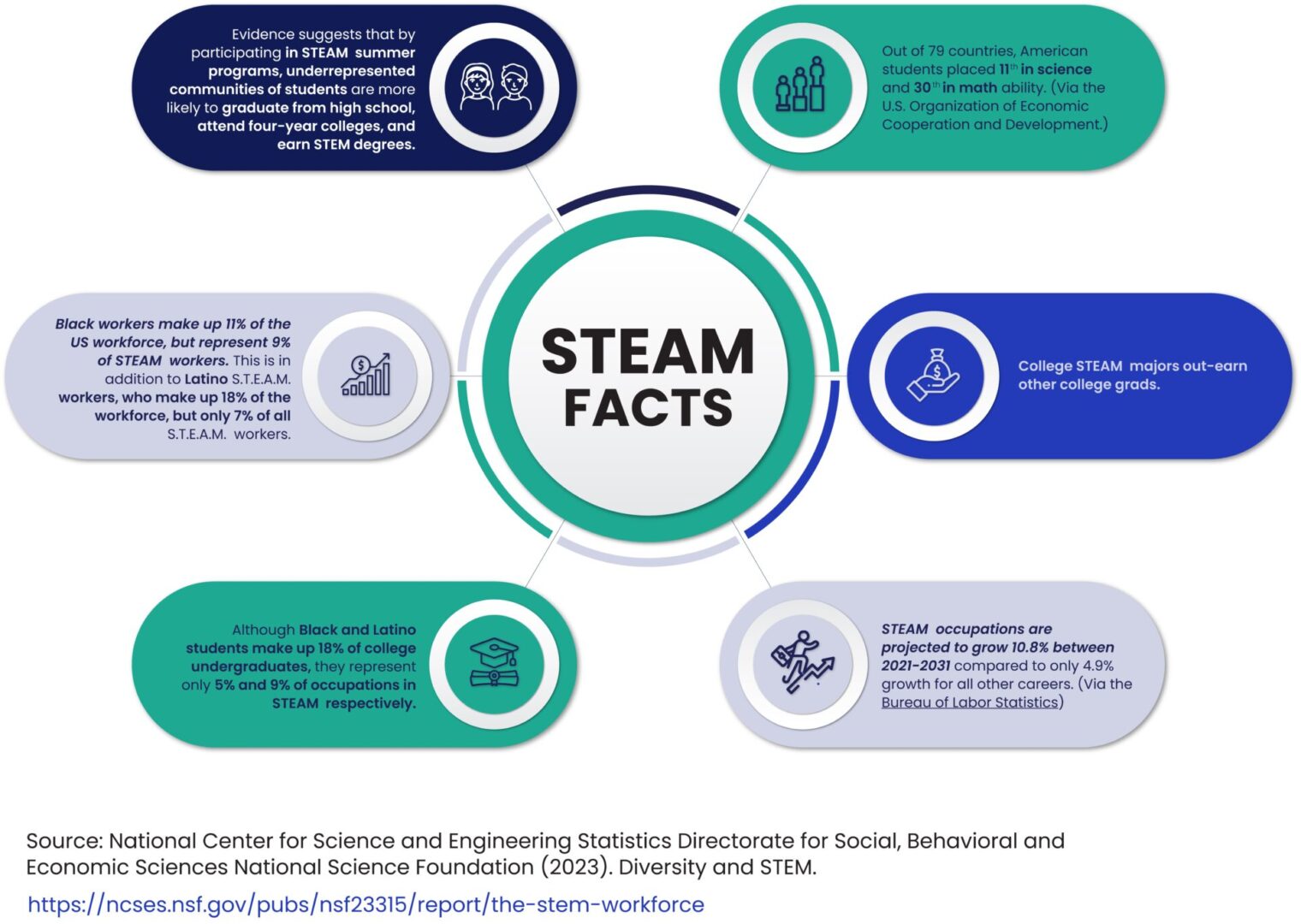Academic Achievement
Academic achievement is particularly important for minority students as it can be a key factor in overcoming systemic barriers and achieving upward social mobility. Excelling academically opens doors to higher education and better job opportunities, which can be crucial for breaking cycles of poverty and marginalization often faced by these communities.
Furthermore, academic success for minority students can serve as a powerful tool for challenging stereotypes and inspiring future generations within their communities. In essence, academic achievement not only benefits the individual student but also contributes to the broader empowerment and progress of minority groups.


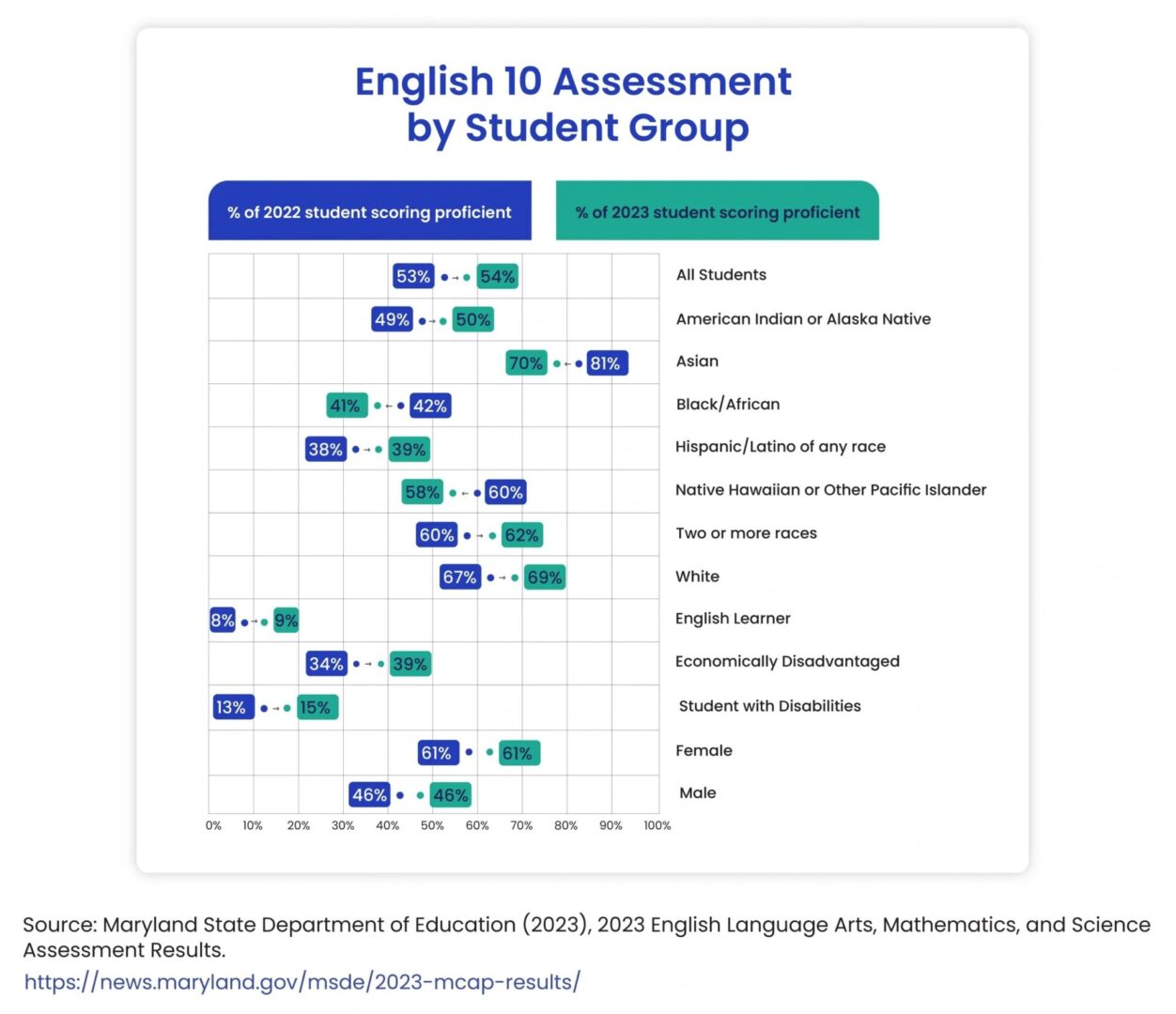
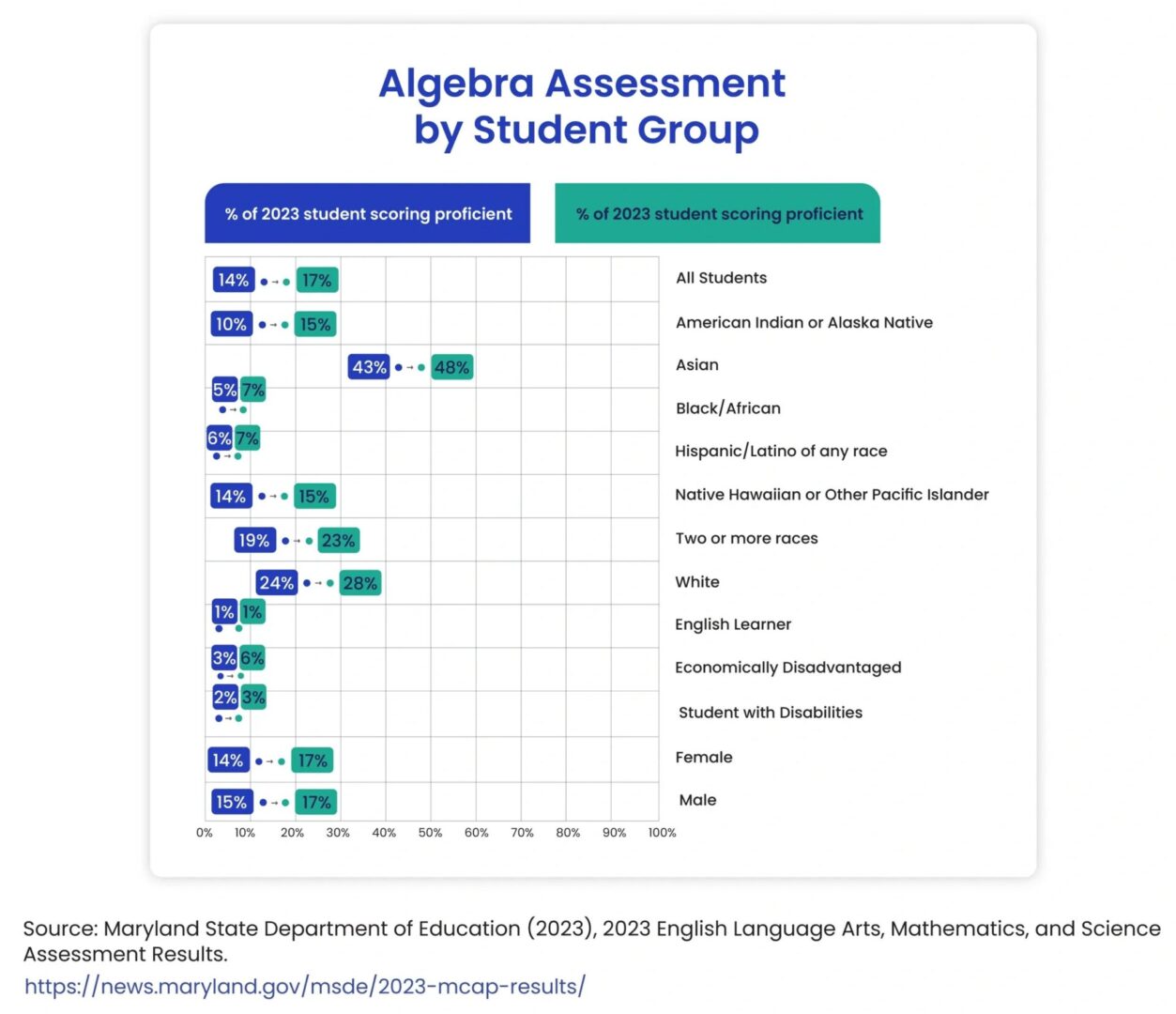

Neurodiversity Awareness
Neurodiversity awareness is crucial for minority students as it fosters an inclusive and equitable educational environment that respects and values diverse neurological differences. This awareness helps in reducing the dual stigma associated with both racial/cultural minority status and neurodivergence, such as autism or ADHD. It ensures that these students receive tailored support and recognition, preventing misinterpretation of their needs and behaviors. By promoting a deeper understanding among educators and peers, neurodiversity awareness empowers minority students to thrive academically and socially, embracing their unique strengths.
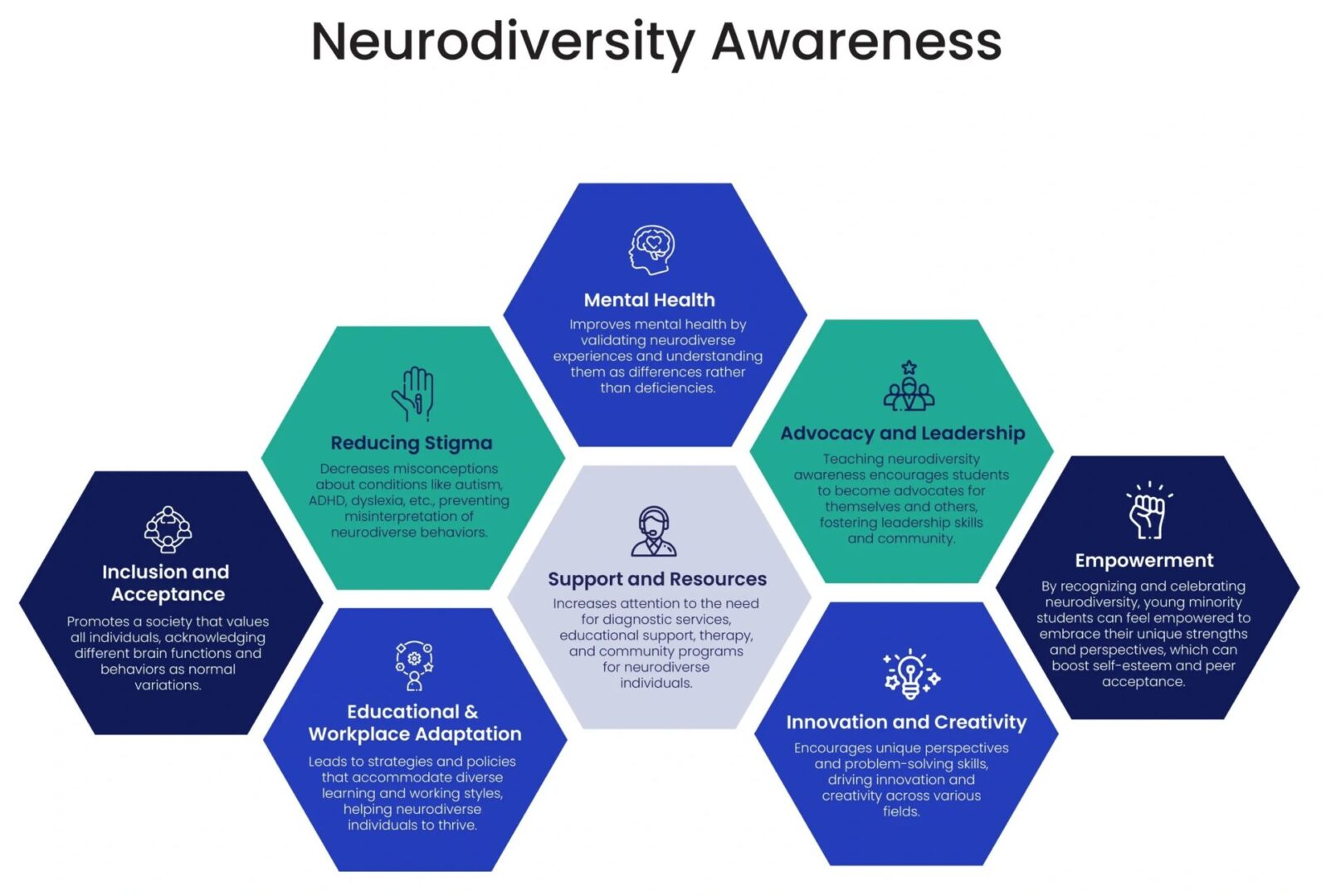
Health and Wellness
Health awareness is essential for minority students as it directly impacts their ability to thrive both in and out of the classroom. By being informed about health risks and preventive measures specific to their communities, these students can make empowered decisions about their health and well-being. This awareness also helps in identifying and addressing health disparities, ensuring that minority students have equal access to healthcare resources and education. Ultimately, heightened health awareness leads to better health outcomes, improved academic performance, and a stronger foundation for long-term success.

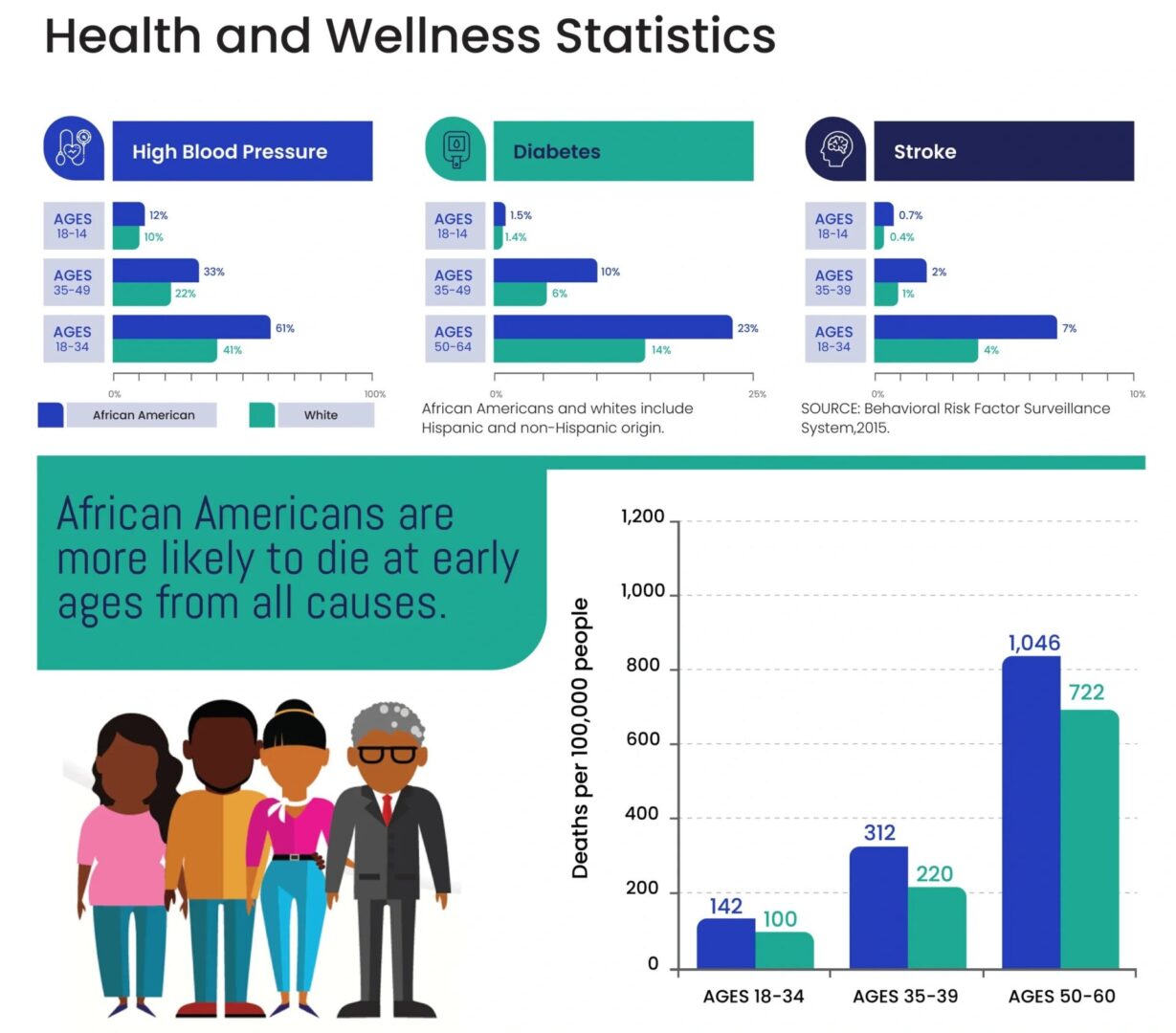

STEAM
STEAM (Science, Technology, Engineering, Arts, and Mathematics) education is vital for minority students as it equips them with critical skills needed in an increasingly tech-driven world. By engaging in STEAM, these students gain access to a wide range of high-demand, well-paying career opportunities, helping to close the economic gap often experienced by minority communities. Additionally, STEAM education fosters creativity, problem-solving, and analytical thinking, skills essential for innovation and leadership. Encouraging minority students in STEAM fields also diversifies perspectives in these areas, leading to more inclusive and groundbreaking advancements in technology and science.
